15 Aug BLOG: Understanding the Impact of Social Media on Mental Health: Tips for a Healthy Online Presence
By Enya Galway
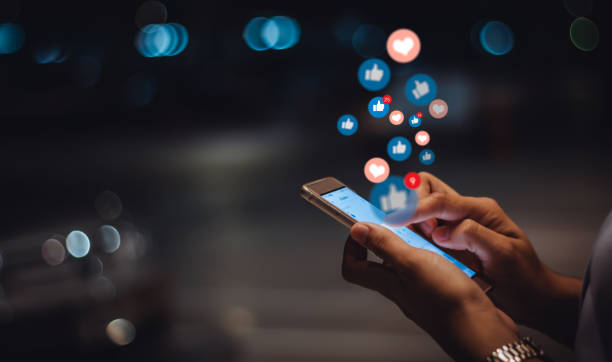
Did you know that the UK was home to 57.60 million active social media users in January 2023, equating to 84.4% of the total population? In addition, the number of mobile phone internet users reached a staggering 59.88 million, with the average person spending 6 hours 12 minutes a day online; excluding the likes of messenger apps (WhatsApp, iMessage, Facebook Messenger) and search engines (Google, Bing, Yahoo) 2 hours 41 minutes of that time was focused on social media platforms such as: Facebook, Instagram, Twitter, SnapChat, YouTube, TikTok, LinkedIn – the list is endless.[1]
In today’s digital age, social media has become an integral part of our lives. While it offers numerous benefits, it can also have a significant impact on our mental health. Understanding this influence is crucial for maintaining a positive and healthy online presence.
So, we wanted to highlight some of the main risks related to social media alongside practical tips to help reduce their effects:
1. The tendency to compare ourselves to others:
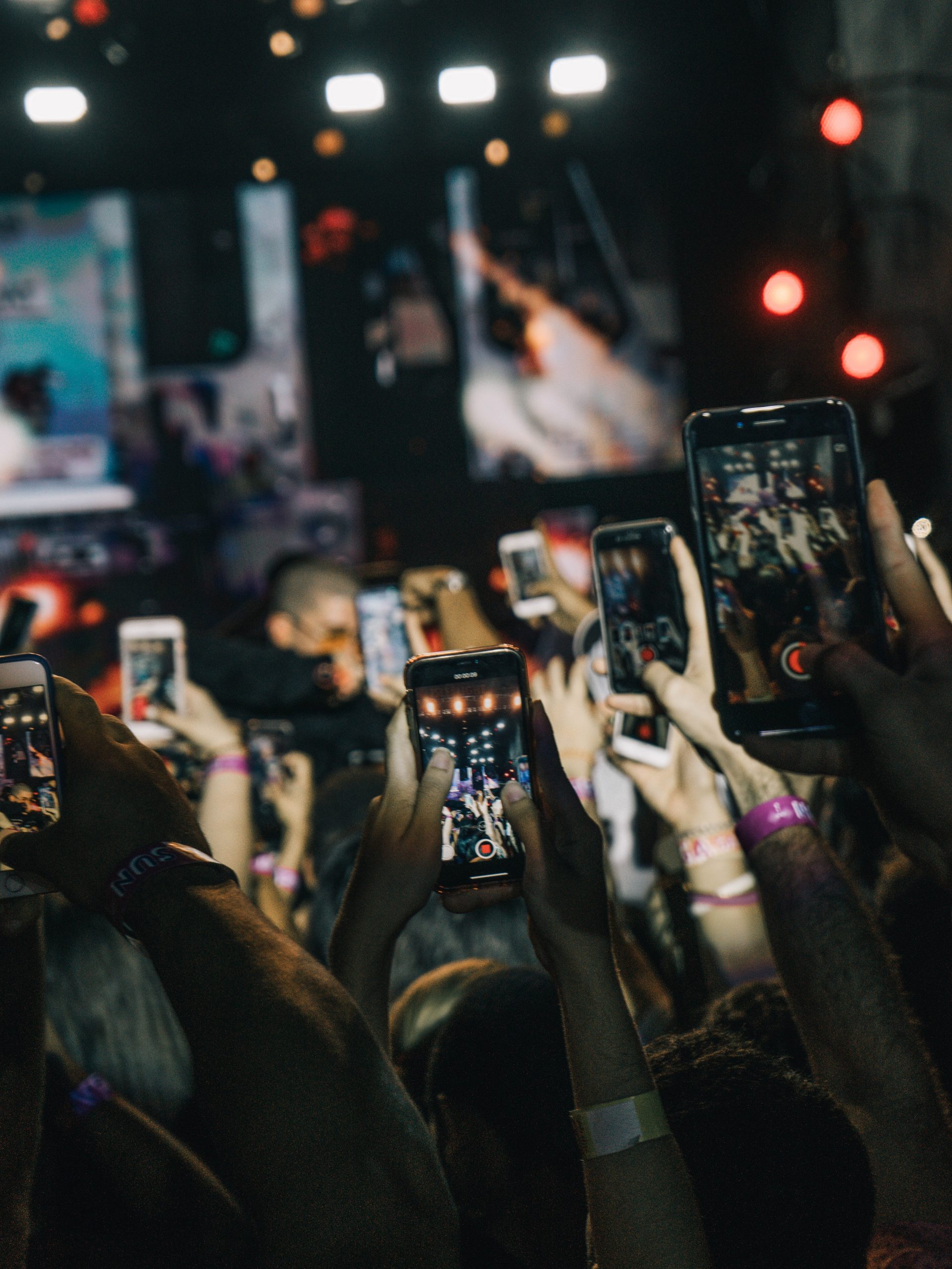
Social media platforms often portray an idealised version of people’s lives; showcasing their accomplishments, holidays, relationship milestones and perfect moments – otherwise known as ‘highlight reels’. We all fall prey to comparing everyone else’s highlight reels to our ‘behind-the-scenes’ at times, and constant exposure to such curated content can leave you with a distorted sense of reality. The pressure to live up to others’ seemingly perfect lives can be overwhelming and incredibly detrimental to your mental wellbeing.
FOMO or ‘Fear of Missing Out’ is a social phenomenon that is closely linked to the digitalisation of our day-to-day lives. In 2013, British psychologists defined the term as ‘a pervasive apprehension that others might be having rewarding experiences from which one is absent’ which is ‘characterised by the desire to stay continually connected with what others are doing.’[2] In simpler terms, it refers to the feeling or perception that others are having more fun, living better lives, or experiencing better things than you are.
Frequently or continually comparing yourself to others is unhealthy and can lead to feelings of inadequacy, anxiety and a constant need to stay connected.
TIPS:
> Practice mindful consumption: Be intentional and selective about the content you engage with on social media. Choose to follow accounts that promote authenticity, positivity and meaningful content. Unfollow or mute accounts that trigger negative emotions and contribute to feelings of inadequacy.
“If you are on social media and you are not learning, not laughing, not being inspired or not networking, then you are using it wrong.” – Germany Kent
> Set healthy boundaries: As a short-term mental health goal, set limits to your screen time on social media but be realistic about the limits you can stick to. Creating boundaries can help prevent excessive scrolling and engagement, allowing you to focus on real-world experiences and relationships. Here are a few great ways to maintain healthy social media boundaries:
- As mentioned above, go through the people you follow and do a purge
- Implement a screen free or social media free evening into your week
- Turn your phone upside down and on silent mode when you’re socialising with family and friends
- Turn off all non-urgent notifications
- Uninstall apps that waste your time
- Only click on things you actually care about, avoid suggested recommendations
- Remove all devices from your bedroom every night
2. Negative self-perception:

The platforms we use on a day-to-day basis tend to showcase unrealistic beauty standards, especially in terms of body image and appearance, leading individuals to compare their bodies and physical attributes to digitally enhanced or carefully selected images. This sort of exposure to idealised versions of beauty can fuel body dissatisfaction, eating disorders and body dysmorphia.
A survey published by Mental Health Foundation found that over a third of UK adults have felt anxious or depressed because of concerns about their body image. While 4 in 10 teenagers (40%) said images on social media had caused them to worry about body image.[3]
Moreover, social media can create a culture of seeking external validation as individuals gauge their worth based on likes, comments and followers. The continual need for validation can erode self-confidence and create an unhealthy reliance on others’ opinions for self-worth.
TIPS:
> Practice gratitude and contentment: Cultivate gratitude for the present moment and appreciate what you have in your life. Try to shift your focus onto your own accomplishments, experiences and relationships and celebrate your own journey and achievements rather than constantly comparing yourself to others.
> Practice self-reflection: Regularly reflect on your social media habits and how they make you feel. Pay attention to any negative emotions or triggers that arise from excessive use or comparisons. Adjust your social media consumption accordingly focusing on what brings you joy and enhances your wellbeing.
> Develop a positive self-image: Recognise your own worth beyond social media metrics. Focus on self-acceptance, self-care and self-development. Celebrate your unique qualities and achievements. Remind yourself that social media often presents a carefully curated version of people’s lives; that what you see on social media is not the full reality, and everyone experiences ups and downs.
3. Increased feelings of loneliness:

Social media can be seen as a paradox; it can simultaneously connect and isolate individuals. Ironically, spending hours of your day on socials can contribute to increased feelings of loneliness and isolation. The influence can also be seen to go both ways in that isolation also drives social media usage, which creates this vicious cycle that can be incredibly difficult to break.
In 2015, the Office for National Statistics reported that children who spent more than three hours on ‘social websites’ on a normal school night were “more than twice as likely to show symptoms of mental ill-health.”[4]
While social media allows us to connect with others, it often encourages shallow interactions and a lack of genuine connection. Scrolling through other people’s lives and observing social gatherings can intensify feelings of exclusion and loneliness, especially for those who may be going through challenging times. Furthermore, the addictive nature of social media can lead to excessive screen time, causing individuals to disengage from real-world relationships and activities.
TIPS:
> Foster real connections: It is important to prioritise quality over quantity when it comes to social connections. Build and nurture meaningful relationships with individuals who uplift and support you, spend time with loved ones, and deepen those connections through face-to-face interactions, meaningful conversations and shared experiences. Actively participate in activities and hobbies that bring you joy and fulfilment offline.
> Digitally detox: Occasionally disconnect from social media and take digital detox breaks. Designate periods of time, whether it’s a few hours, a day, or even a weekend, where you refrain from using social media. Use this time to engage in self-care and enjoy activities that rejuvenate you.
Unplugging from social media can provide numerous benefits for your mental health, including improved sleep quality, increased productivity and creativity, improved interpersonal relationships and increased self-awareness and mindfulness. Without constant notifications and distractions, you’ll be able to tune in to your own thoughts and feelings and engage in mindfulness practices that can help reduce stress and improve mental clarity.
> Headspace is a great app that provides science-backed mindfulness tools for everyday life including meditations, sleepcasts, mindful movement and focus exercises to help you create life-changing habits to support your mental health.
4. Cyber bullying and online harassment:
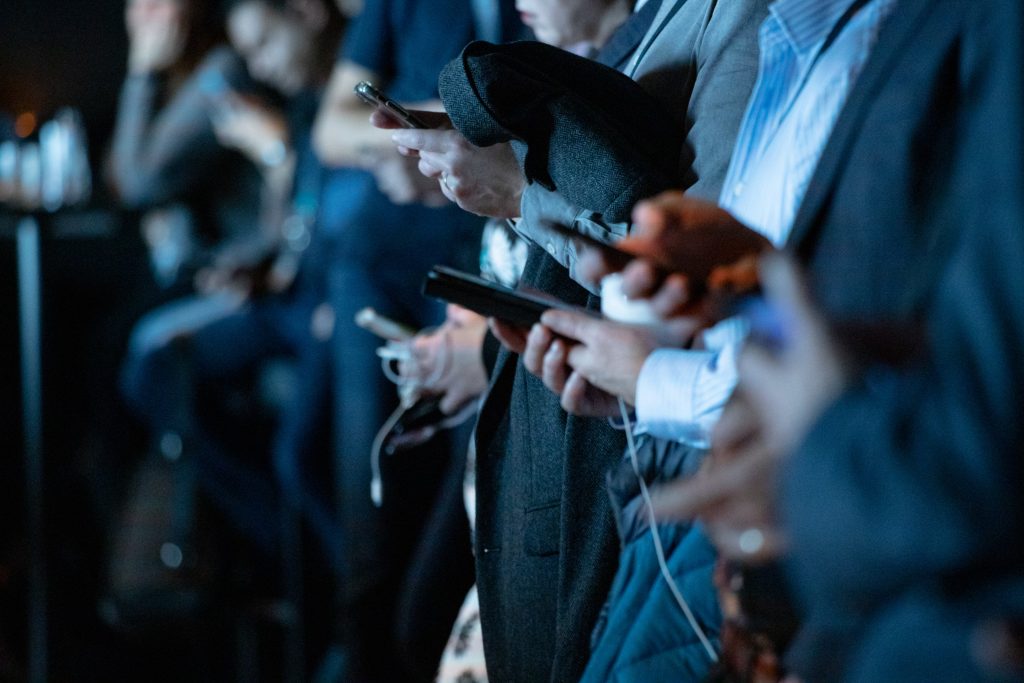
These two issues have unfortunately become prevalent on social media platforms. The old adage, “sticks and stones may break my bones, but words will never hurt me” does not apply in the digital world today. It is important to remember that online harassment will almost always have an offline impact.
According to a 2020 study, around 1 in 5 children aged 10 to 15 years in England and Wales (19%) experienced at least one type of online bullying behaviour. This is equivalent to 764,000 children.[5] Research by Ofcom in 2022 also found that older children in the UK are more likely to be bullied on a screen (86%) than in person.[6]
The anonymity and distance provided by online interactions can embolden people to engage in harmful behaviour. It is therefore essential to address these issues and promote kindness and empathy online.
TIPS:
> Encourage a culture of kindness: Try your best to be a positive influence. Treat others with respect and consideration, even when you disagree with them. Promote healthy digital habits by engaging in constructive conversations but avoid engaging in or encouraging negative behaviour. By setting an example, you can inspire others to follow suit.
> Before you post, THINK:
T: Is it true?
H: Is it helpful?
I: Is it inspiring?
N: Is it necessary?
K: Is it kind?
> Seek support: Reach out to trusted friends, family members or professionals who can provide you with emotional support and guidance. Discussing your experiences with someone you trust can really help to alleviate the emotional impact social media might be having on you. There are also some great online resources out there:
The National Bullying Helpline is run by volunteers, 9am – 5pm, Monday to Friday. Tel: 0845 225 5787 Email: help@nationalbullyinghelpline.co.uk
Side by Side run by Mind is a 24/7 online peer support community for adults (18+), where you can talk about your mental health and connect with others who understand what you are going through.
5. Unlocking the positives:
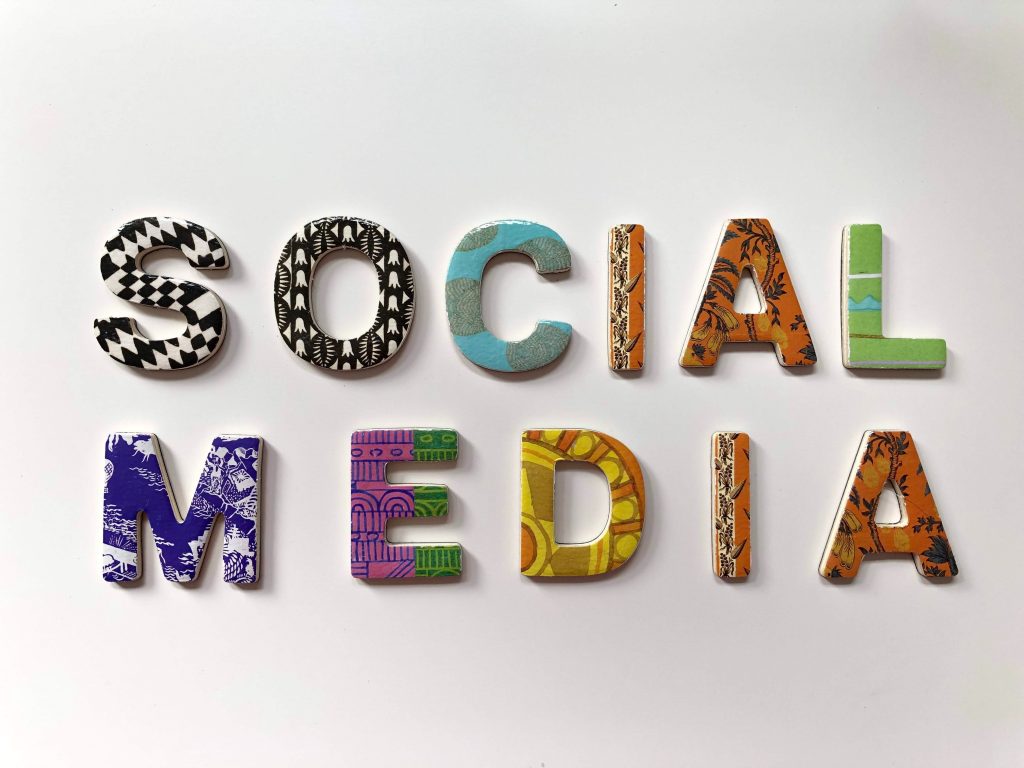
Remember, social media isn’t harmful or beneficial in itself; its manner of use is the determining factor. Here are just a few ways social media can support our mental health:
> The anonymity afforded by social media allows people to express themselves and reveal their personal experiences in a safe space, free from the fear of stigma.
> Similarly, people dealing with mental illness often hesitate to confide in those closest to them about their struggles. As a result, the internet has emerged as a safe haven of sorts, where individuals can seek health advice on various subjects such as depression, contraception, acne treatments and more.
> Social media platforms can be used to spread helpful, uplifting and inspiring information. This can include self-care tips, leading by example for others, and posting personal stories about mental health struggles and successes.
> Publicly sharing a healthy lifestyle goal, such as quitting smoking or consistently going to the gym, not only promotes accountability but also generates positive reinforcement from friends, while stimulating an online social support network.
> Social media plays a significant role in helping to facilitate relationships, particularly for individuals separated by geographical distances, effectively breaking down barriers. Moreover, it proves to be a valuable tool for sustaining connections among those with disabilities such as older individuals and people facing mobility constraints that prevent them from travelling beyond their homes.
> Far from increasing isolation, social media can provide alternative means of finding support:
- One of the most widely used social media platforms for connecting with local organisations, groups and clubs is Meetup – providing people a healthy excuse to go outside rather than stay cooped up indoors or hunched over a computer.
- Twitter also has a feature called Tweetups, which are face-to-face meetups that are organised online involving people with similar interests ranging from those who share a love of playing chess to groups of recovering people living with addiction.
- Facebook events are another example of how social media can build new connections and support networks.
> Platforms have also started introducing tools to make people’s experiences safer and more positive:
- Instagram has introduced a tool, which redirects anyone searching for a monitored hashtag (e.g. something related to disordered eating) to their support system. Also, if a person sees a post on their feed they feel might be related to self-harm or another mental health issue, they can send an anonymous report. The individual will then get a kind message directing them to support should they need it.
- Facebook has built a suicide prevention tool in consultation with Samaritans, that allows users to report worrying content. Individuals will then be sent a notification asking if they need support from a friend or helpline, or in more extreme cases, the number for emergency services.
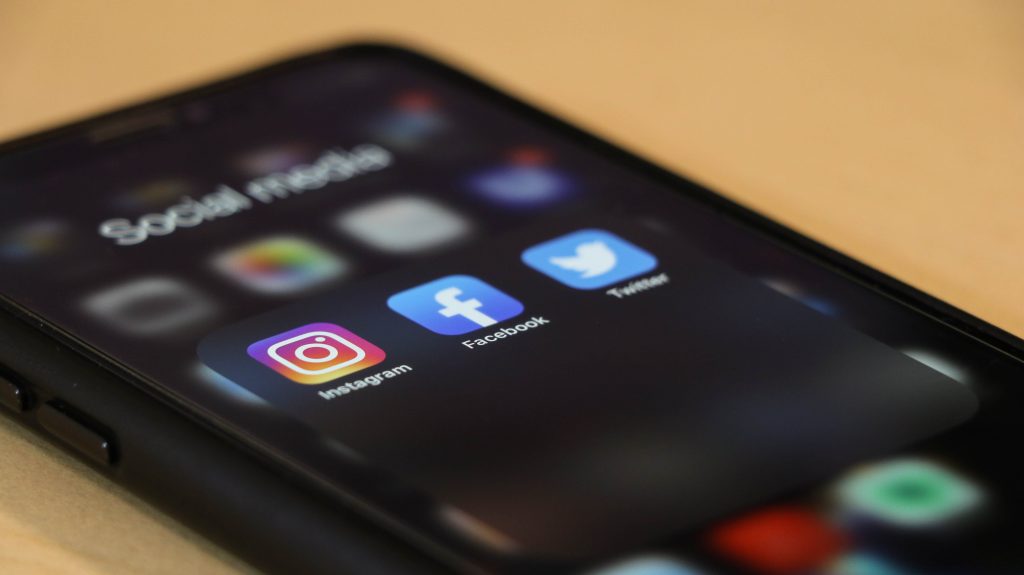
5. The take-away:
In conclusion, the key to controlling how social media impacts us lies in how we use it.
It can be a valuable tool for connection and self-expression when used mindfully. Therefore, by being aware of the risks and taking proactive steps to protect your mental wellbeing, you can cultivate a healthier relationship with yourself and others.
If you or someone you know is struggling or simply just needs someone to talk to, please make use of the resources below:
- Mind: How to Find a Therapist
- Samaritans: 116 123 (24 hours)
- Citizens Advice: 03444 111 444 (Mon-Fri, 9am-5pm)
- Oakleaf: 01483 303649 or info@oakleaf-enterprise.org or see our referral form
- Guildford Safe Haven: Oakleaf’s premises, 6-11pm, 365 days a year
- Young Adult Safe Haven: Oakleaf’s premises, 5-9pm, 365 days a year
[1] https://www.theglobalstatistics.com/uk-social-media-usage-statistics/ (2023)
[2] Przybylski AK, Murayama K, DeHaan CR, Gladwell V. Motivational, emotional, and behavioral correlates of fear of missing out. Comput Human Behav (2013)
[3] https://www.mentalhealth.org.uk/explore-mental-health/articles/body-image-report-executive-summary (2019)
[4] https://publications.parliament.uk/pa/cm201719/cmselect/cmsctech/822/822.pdf (2017-2019)
[5] https://www.ons.gov.uk/releases/onlinebullyinginenglandandwalesyearendingmarch2020 (2020)
[6] https://www.ofcom.org.uk/research-and-data/media-literacy-research/childrens/children-and-parents-media-use-and-attitudes-report-2022 (2022)




Sorry, the comment form is closed at this time.